After the pilot ends, the university will continue to be autonomous.
Deputy Prime Minister Vu Duc Dam affirmed that official documents will have to be issued to continue implementing university autonomy.
On October 20, the Ministry of Education and Training held a conference to summarize the pilot innovation of the operating mechanism for public higher education institutions in the period 2014-2017. The whole country has 23 public higher education institutions with autonomy, of which 12 are over 2-year schools and 11 are under 2-year schools. The schoolsautonomy in the fields of: training and scientific research; organization, personnel; finance.
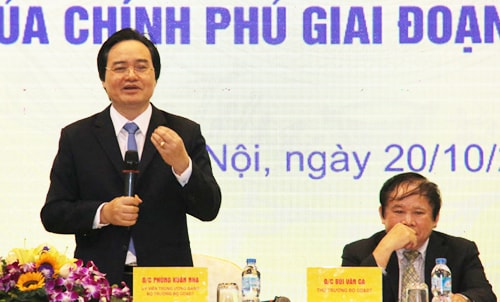 |
Minister of Education and Training Phung Xuan Nha assessed that the schools selected to pilot university autonomy have had initial successes in attracting students and ensuring revenue sources... |
According to the Ministry of Education's assessment, when autonomous, schools have proactively opened majors and developed training programs according to social needs; teaching methods and content approached international standards; the proportion of staff and lecturers with academic titles and degrees from master's degree or higher increased...
Nguyen Dong Phong, Principal of Ho Chi Minh City University of Economics, affirmed: "Autonomy has brought many innovations to my school that I have never seen in my 42 years of working at the school." Without autonomy, the school would have achieved such development, but it would have taken a long time due to lack of investment resources, especially having to wait for "licensing".
Mr. Phong cited some of the school's successes after 3 years of autonomy, such as: the number of articles published in ISI and Scopus journals increased from 78 to 137. The school ensured income for lecturers and staff and had certain surpluses.
The principal of Ho Chi Minh City University of Economics and representatives of many autonomous pilot schools pointed out that the biggest problem with this model is the lack of a legal corridor and that directive documents are often contradictory.
This is also a limitation acknowledged by Minister Phung Xuan Nha. Mr. Nha said that the management mechanism under the parent ministry regime is no longer suitable for the autonomous model. In addition, universities are not fully aware of autonomy, have poor management capacity, and have not ensured publicity, transparency, and accountability to relevant parties... which limits effectiveness. "There are still 4 autonomous pilot schools but have not yet established a University Council," Professor Nha gave an example.
When many universities expressed concern that the pilot autonomy period only had two months left, the Minister said he would propose amending and supplementing a number of related laws to create a more complete legal framework for the effective implementation of this model.
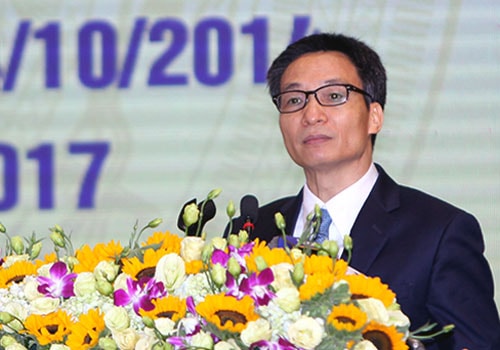 |
Deputy Prime Minister Vu Duc Dam affirmed that university autonomy will continue to be implemented in the coming years. |
Deputy Prime Minister Vu Duc Dam affirmed that "university autonomy will not be discussed whether it is necessary or not, but it has been agreed that it must be done; official documents must be issued to continue doing it." He emphasized that autonomy is a necessary attribute of world universities. When implementing it, Vietnam has many difficulties but there is no other way but to do it more strongly.
"If we don't improve the quality of university education, we will not fulfill our responsibility to the country and society. And if we compete with the world, we will lose," said the Deputy Prime Minister.
Mr. Dam believes that university autonomy must first be understood correctly. Autonomy must first be about expertise and academics in teaching and research, eliminating daily intervention and administrative imposition on the internal affairs of schools, thereby giving rise to rights regarding the apparatus and personnel, including establishment, appointment, dismissal, and remuneration.
Financial autonomy, meaning that educational institutions are autonomous in revenue and expenditure according to legal regulations, is only a part of this concept. Previously, school revenue was allocated based on input, number of staff, or registration quotas, regardless of output quality. When autonomous, schools still receive budgets, but it will be based on the way tasks are assigned and the quality of education.
According to VNE
| RELATED NEWS |
|---|

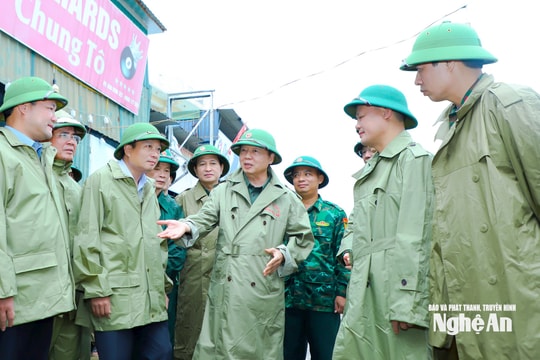
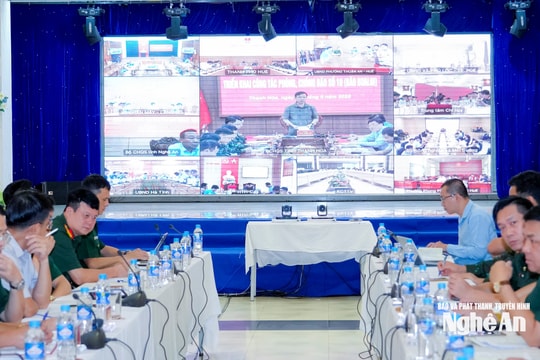
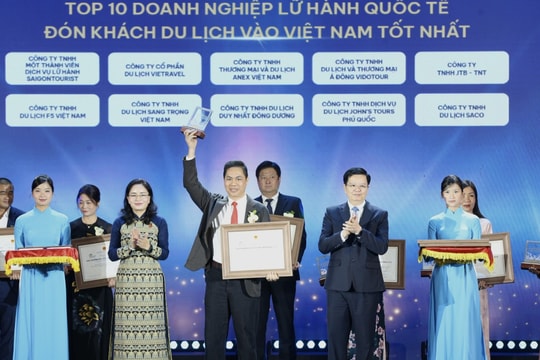

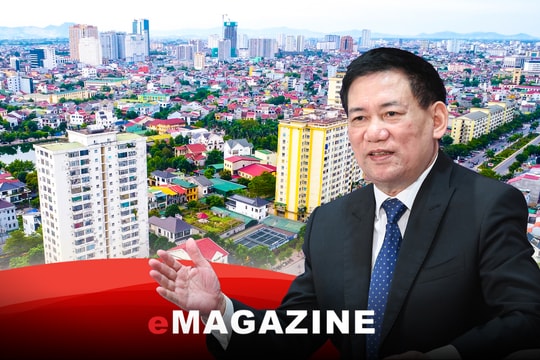
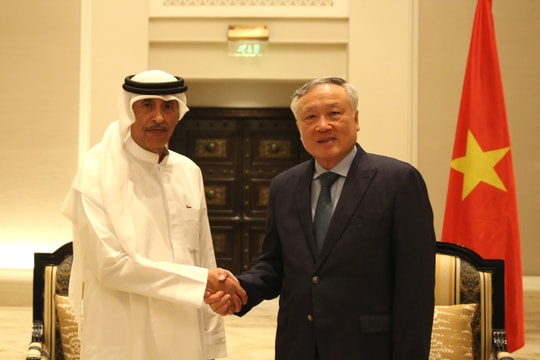
.jpg)
